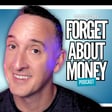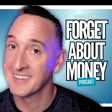
🗣️ FINCON, CampFI, & FinTalks: 3 Live Events to Enrich Your Financial Independence Journey! 🚢
Watch and Subscribe on YouTube
🎤 Philip "PT Money" Taylor (FINCON), Stephen Baughier (CampFI), and Amberly Grant (FinTalks) share the evolution and impact of their live events on the FI community.🏕️
Philip, Stephen, and Amberly discuss how their events—ranging from conferences to camp retreats and even cruises—offer unique experiences for people seeking financial freedom.
In this episode, we discuss:
1️⃣ The Origins of FINCON, CampFI, & FINTALKS: How these events began and what motivated their founders.
2️⃣ What to Expect When Attending: A breakdown of the experience, community, and content at each event.
3️⃣ Pricing & Accessibility: Learn about the pricing structure and what’s covered for FINCON, CampFI, and FINTALKS.
4️⃣ Building Real FI Communities: How Stephen is taking FI to the next level with his unique in-person neighborhood.
5️⃣ Challenges & Future Plans: The founders reflect on the obstacles they’ve faced and their vision for the future.
🔗 Philip "PT Money" Taylor's Links:
📆 FINCON
🔗 Stephen Baughier's Links:
🏕️ CampFI
🔗 Amberly Grant's Links:
🔗 David's Links:
🍏 Forget About Money on Apple Podcasts
🎧 Forget About Money on Spotify
📜 Fi Community Builder Quotes:
💡 "FINCON is all about creating a space for financial content creators to connect, share, and grow." — Philip "PT Money" Taylor
🔥 "CampFI brings the FI community together in a personal and relaxed environment, fostering deep connections." — Stephen Baughier
🚢 "FinTalks started with Facebook Lives but has evolved into a cruise where people create lifelong friendships." — Amberly Grant
#financialindependence #financialfreedom #moneymotivation #FINCON #CampFI #FinTalks #PhilipTaylor #StephenBaughier #AmberlyGrant
🎧 Listen & Subscribe: Don’t forget to subscribe to "Forget About Money" for more ways to enrich your personal finance and life journey. Hit the bell icon 🔔 to stay updated on the latest episodes!
Disclaimer: This episode is for entertainment and educational purposes only and does not constitute legal, tax, or financial advice. Consult a professional for your specific financial situation.

